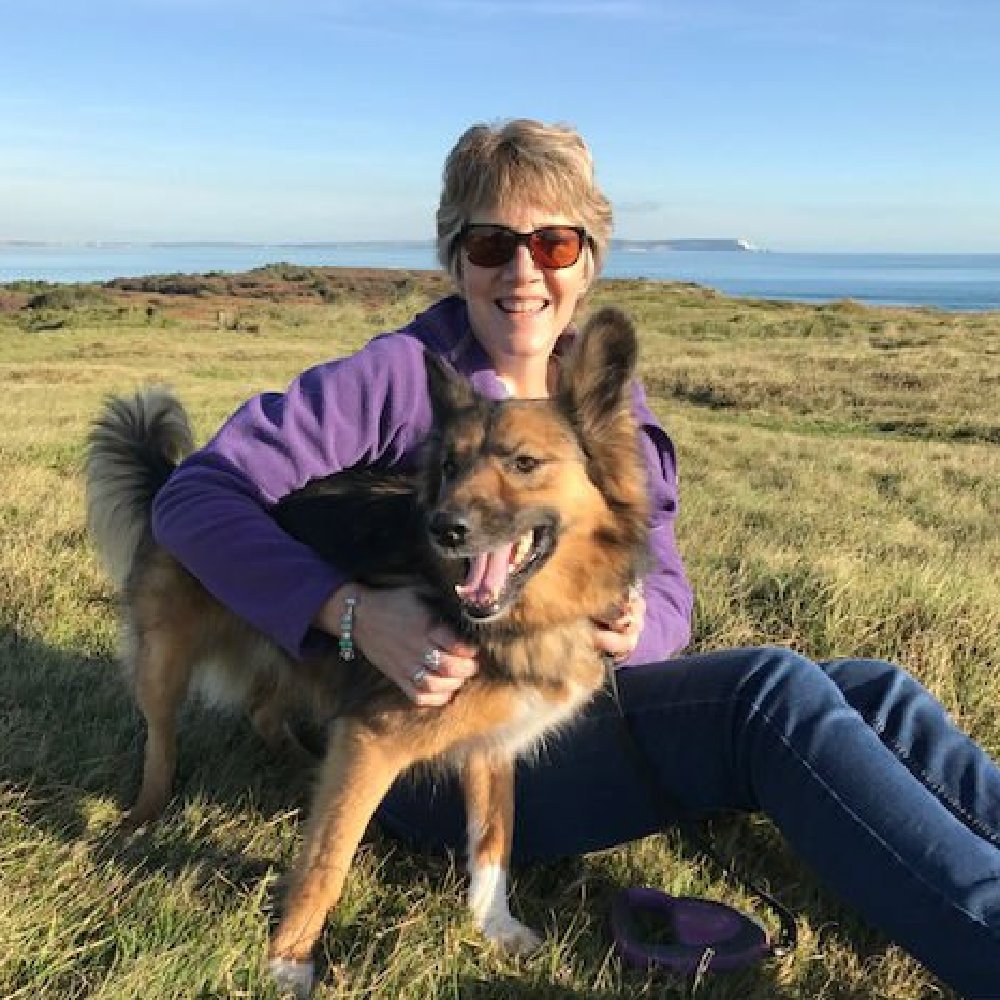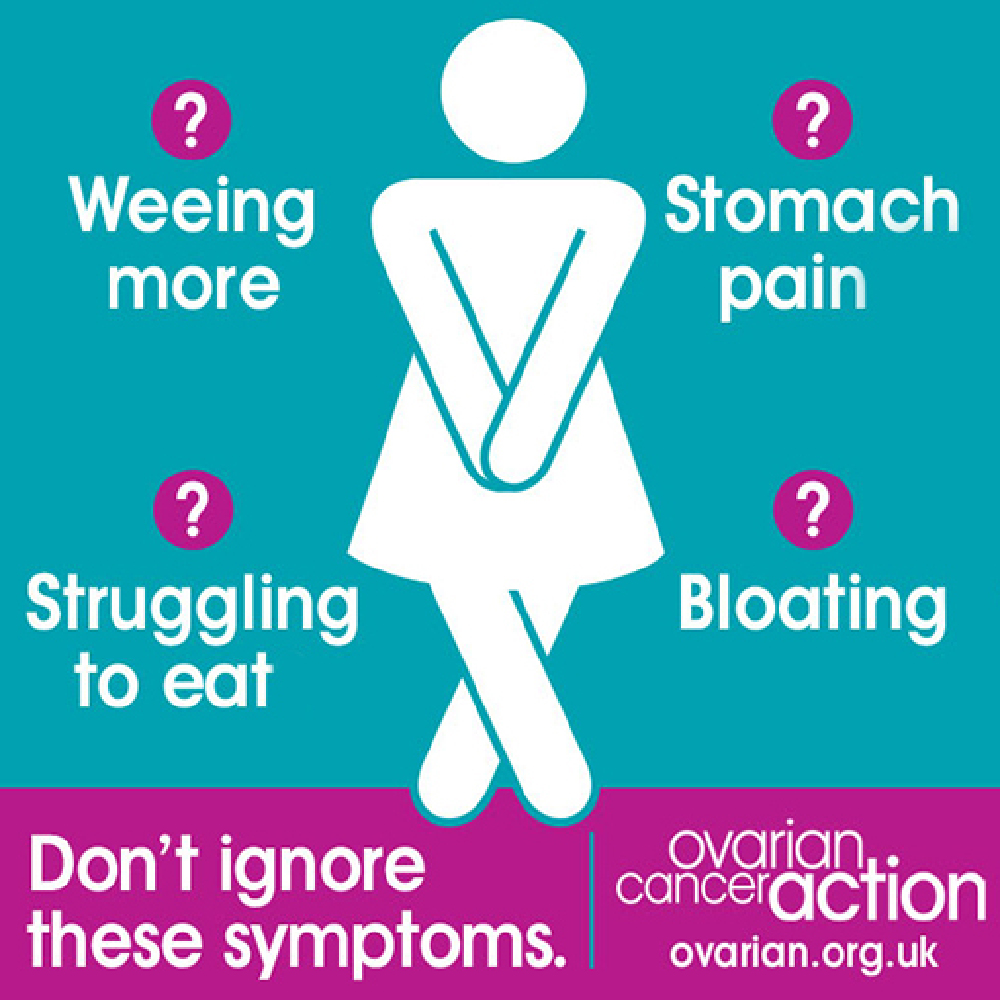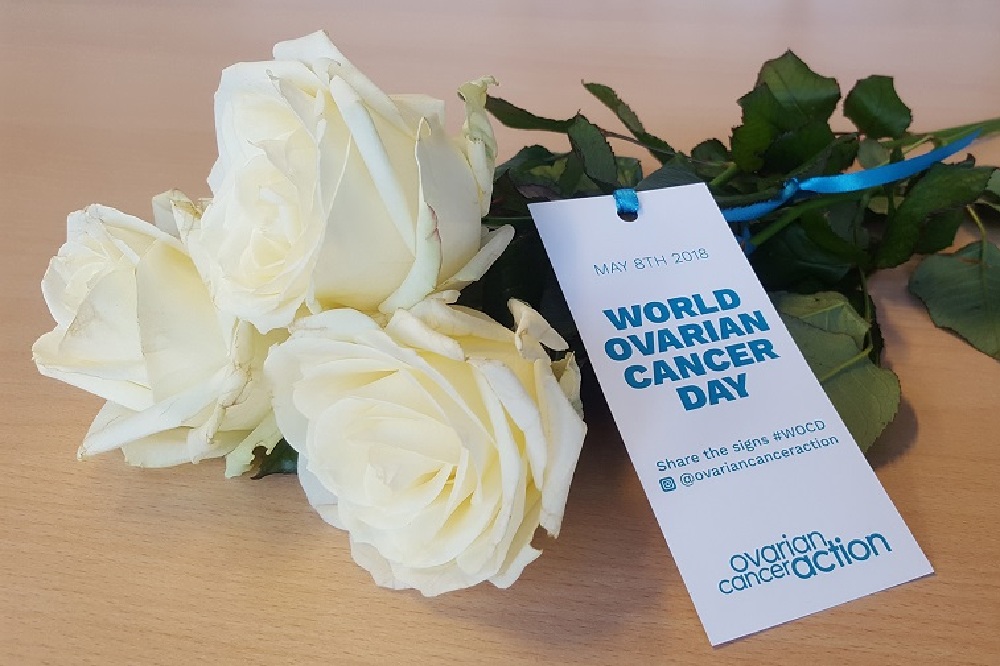Today is World Ovarian Cancer Day – the one day we come together to raise awareness of a disease that kills one woman every two hours in the UK. Research charity Ovarian Cancer Action (OCA) explains why awareness could be life-saving.

Kim Gray
Ovarian cancer isn’t as well-known as other cancers, yet it kills more women than the other four gynaecological cancers combined.
Unlike cervical cancer, there’s no screening programme for the disease. This means symptoms-awareness is the best tool we have to catch ovarian cancer early when survival rates are highest.
OCA supporter Kim Gray knows how important it is to recognise the signs of ovarian cancer and act on them.
Kim was diagnosed with stage 4 ovarian cancer. It’s been almost a year since her last chemotherapy session and she hopes that sharing her story will provide support and encouragement to other women who have been diagnosed.
In 2016, Kim and her husband decided they needed a break from their stressful lifestyles and took a well-deserved family holiday to Mauritius. It was then Kim began to experience unusual symptoms.
“One evening I felt very bloated and thought the yellowfin tuna I had eaten for lunch had upset my stomach. The hotel nurse gave me some indigestion tablets, but over the next couple of days I felt increasingly worse, and noticed my stomach getting bigger and bigger. I ended up looking about seven months pregnant. By Friday I couldn’t lie down, and was having trouble eating and difficulty walking. The hotel doctor examined me and sent me straight to hospital where I met Dr Gopal – the doctor who was to become our guardian angel.”
Dr Gopal ran some investigative tests. The results revealed Kim had ovarian cancer.
“We were shell-shocked. This was not the perfect holiday I had wanted for my beautiful daughter and we felt extra vulnerable being so far from home.
“Dr Gopal offered support and reassured us that I was fit and strong and would cope well with the chemo and surgery. I remembered his words often whilst having treatment.”
After Kim returned home, further tests showed the cancer was advanced and inoperable.
“I needed chemotherapy first to reduce the tumours before they could operate. Thankfully the chemo did its job and I was lucky not to suffer too many side-effects.”
Kim then underwent an eight-hour surgery. Recovery was hard.
“After ten days in hospital I came home frightened to sleep, breathless and hardly able to walk. My amazing husband Andy encouraged me to walk a little further each day and slowly my body healed.”
Kim had further rounds of chemo and also had regular doses of a drug called Avastin. Thankfully she responded well to treatment and her latest scan in February 2018 showed no sign of cancer.
Reflecting on the last two years, Kim says: “In hindsight, I did have some warning signs. I feel very lucky to be so fit and well almost two years after my shock diagnosis. On World Ovarian Cancer Day I’ll be remembering those whose lives have been taken early and those who are undergoing treatment for recurrence.
“WOCD is a chance to come together to increase awareness of this disease and hopefully save lives. As a ‘Voice’ [awareness ambassador] for Ovarian Cancer Action I encourage women: know the symptoms and listen to your bodies. There are mothers, daughters, sisters and wives who could be saved if diagnosed at an early stage. It can make a real difference.”
To find out more about ovarian cancer visit ovarian.org.uk
Symptoms of ovarian cancer
Symptoms of ovarian cancer are often mistaken for symptoms of less serious conditions, such as Irritable Bowel Syndrome. Regular experience of the following could be a symptom of ovarian cancer, if you’re worried, speak to your GP.
- Persistent stomach pain
- Persistent bloating
- Difficulty eating/feeling full more quickly
- Needing to wee more frequently

Ovarian cancer: The facts[i]
- Ovarian cancer is the 6th most common cancer in women, with 7,400 new diagnoses made in the UK each year
- Ovarian cancer kills more women in the UK each year than all the other gynaecological cancers combined
- The UK has one of the lowest survival rates in Western Europe
- More than 230,000 women are diagnosed with ovarian cancer worldwide every year
- Globally, ovarian cancer is responsible for more than 150,000 deaths each year
- 90% of women diagnosed with stage 1 ovarian cancer will survive five years; however, only 4% of women diagnosed with stage 4 ovarian cancer will survive this long

[i] Source: ‘Ovarian cancer statistics’, Cancer Research UK website. Accessed 16th April 2018.
Tagged in Ovarian Cancer Cancer

